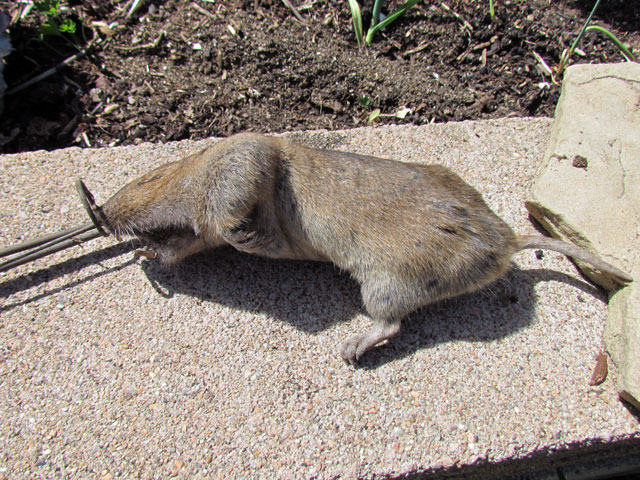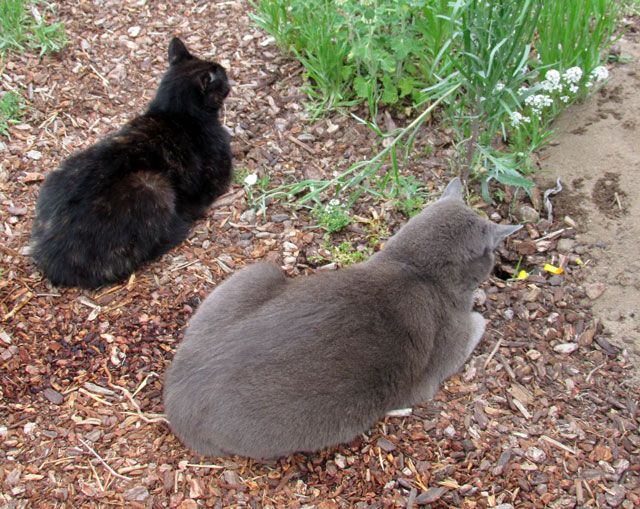Every gardener I know has a story about gophers. The destruction to choice plants, the frustration of limited deterrents, the wiliness of avoiding traps… it goes on. Only hungry ground squirrels can top these rodents for causing so much garden angst.
The annoying thing is, gophers are very important to gardens and the food web. They aerate soils by tunneling and bring up sub soils that mix with topsoil that – over time – create better soil. They add manure underground right where plants can utilize. Gophers are food for many raptors, herons, egrets, owls, bobcats, cougars, coyotes, badgers, and snakes. Our pets find them tasty too.
That said, most do not want to share their gardens with gophers. So what should one do about this unwelcome resident?
The first line of defense is use of barriers. Raised beds with gopher wire bottoms will keep most gophers out of edibles. A gopher is not likely to get into a potted plant. Using gopher baskets with newly planted trees and shrubs can keep gophers off as roots get established. I lay down bird wire when setting up new straw bales for straw bale gardening. Concrete footings of good depth will keep gophers out. All of these methods must be done BEFORE planting.
There are many too-good-to-be-true solutions on the market and some are down right ludicrous. Deterrents such as ground pulsing rods and toxic plants are neatly avoided by gophers. Gases and smokers such as Gopher flares and flame throwers might kill a gopher on occasion, but wreak chemical damages to the soil and microbial food web. Nitrogen dioxide gas is effective but should only be applied by licensed pest control. There are horror stories about those that do not follow this wisdom and employ creative and dangerous DIY solutions.
Poison has too many unintended consequences and there is growing evidence that even the newer class of poisons are delivering sub lethal doses to non-target animals such as hawks, owls, coyotes, neighbor dogs and cats. There is evidence of chemical persistence in soils that impacts the microbes and the rest of the food chain and ultimately – people. I do not recommend using poisons. Read this article about bird deaths caused from rodenticides by the Audobon Society.
The University of California Integrated Pest Management website has great information about gopher biology, behavior, control and provides solid information about the many options in the market that work. I recommend spending a little time to read through this website. Pocket Gophers – Management
As for my garden, I use lethal Macabee and cinch traps. They are a tried and true method that works. The Black Hole and the Victor Black Box are also very effective but need a much larger hole which can be a problem when the gopher is in the vegetable bed. Some gardeners may not be keen on killing the gopher, but there are not too many scenarios where the gopher lives and the garden remains unscathed. Keep that in mind when wrestling with your choices.

